MercoPress. South Atlantic News Agency
Agriculture
-
Friday, July 1st 2011 - 06:29 UTC
Australian MPs plant to limit purchase of prime farmland by foreigners
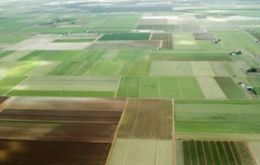
Australian lawmakers are demanding a review of foreign investment rules to stop foreign mining companies, including those from China, buying up prime farmland.
-
Friday, July 1st 2011 - 06:23 UTC
EU farm budget frozen for next seven years and conditioned to ‘greening’

The European Union has published its long-awaited budget, which will see spending on the Common Agricultural Policy (CAP) frozen for the next seven years and make 30% of direct support conditional on ‘greening’.
-
Tuesday, June 28th 2011 - 06:01 UTC
Avoid raw sprouts and seeds to prevent outbreak of E. coli, say Dutch and UK health officials

Dutch and British health officials advised people to avoid raw sprouts and seeds after scientists linked an outbreak of E. coli in France to a highly toxic one in Germany that has killed 47 people.
-
Monday, June 27th 2011 - 06:40 UTC
Global rice production reaches 476 million tons in 2011; strong Mercosur recovery
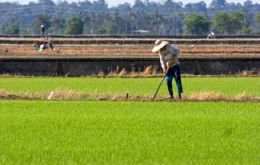
Global rice production is expected to touch 476 million tons in 2011, on the back of improved weather conditions, as the influence of La Niña is expected to neutralize by June, United Nation’s body FAO said.
-
Monday, June 27th 2011 - 06:30 UTC
Food inflation in Latam and Caribbean averaged 7.4% in May

The inflation for food items in Latin America and the Caribbean reached 7.4% in May, according to FAO. The sharp rise in the regional prices was attributed to an even sharper increase in food prices which on a world wide basis rose 37% in May compared to world food prices in May 2010, the FAO said in a report from its regional headquarters in Chile.
-
Monday, June 27th 2011 - 06:19 UTC
Argentina’s soy bean crop will represent 8bn USD in levies for the Treasury
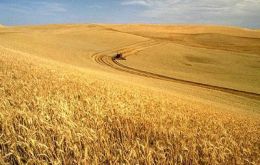
Soy export taxes for the 2010/2011 crop will represent 8 billion US dollars for the Argentine Treasury compared to 6.3bn in the previous season, according to estimates from the country’s Ministry of Agriculture and Livestock.
-
Friday, June 24th 2011 - 19:08 UTC
Argentina’s trade surplus in May rose 29%; imports soared 39%

Argentina's trade surplus in May rose 29% from the previous month, thanks to high prices for the country's exports of grains and manufactured goods, the national statistics agency said Thursday.
-
Thursday, June 23rd 2011 - 22:28 UTC
Paraguay’s economy expands 4.6% in first quarter; down 0.7% from previous quarter
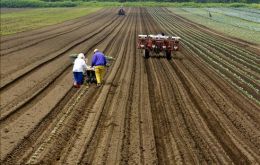
Mercosur full member Paraguay’s economy expanded 4.6% in the first quarter of 2011 compared to a year ago boosted by agriculture in spite of a slowdown in cattle farming and construction, according to the country’s Central bank latest report.
-
Thursday, June 23rd 2011 - 22:17 UTC
In spite of Asian rust and GSS, Paraguay confirms record crop of soy beans

In spite of bouts of Asian rust and the appearance of the ‘green stem syndrome’, GSS, Paraguay harvested a record 8.3 million tons of soy beans with a yield of 2.917 kilos per hectare and a 7.1% expansion of the area dedicated to the oilseed.
-
Thursday, June 23rd 2011 - 18:04 UTC
G20 farm ministers agree to boost output and food market transparency
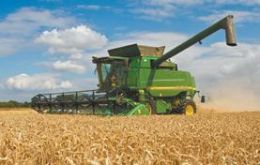
The G20 farm ministers’ summit in Paris agreed on Thursday measures to tackle high food prices in a deal that steered clear of divisive details and paved the way to greater international cooperation on sensitive agricultural issues.